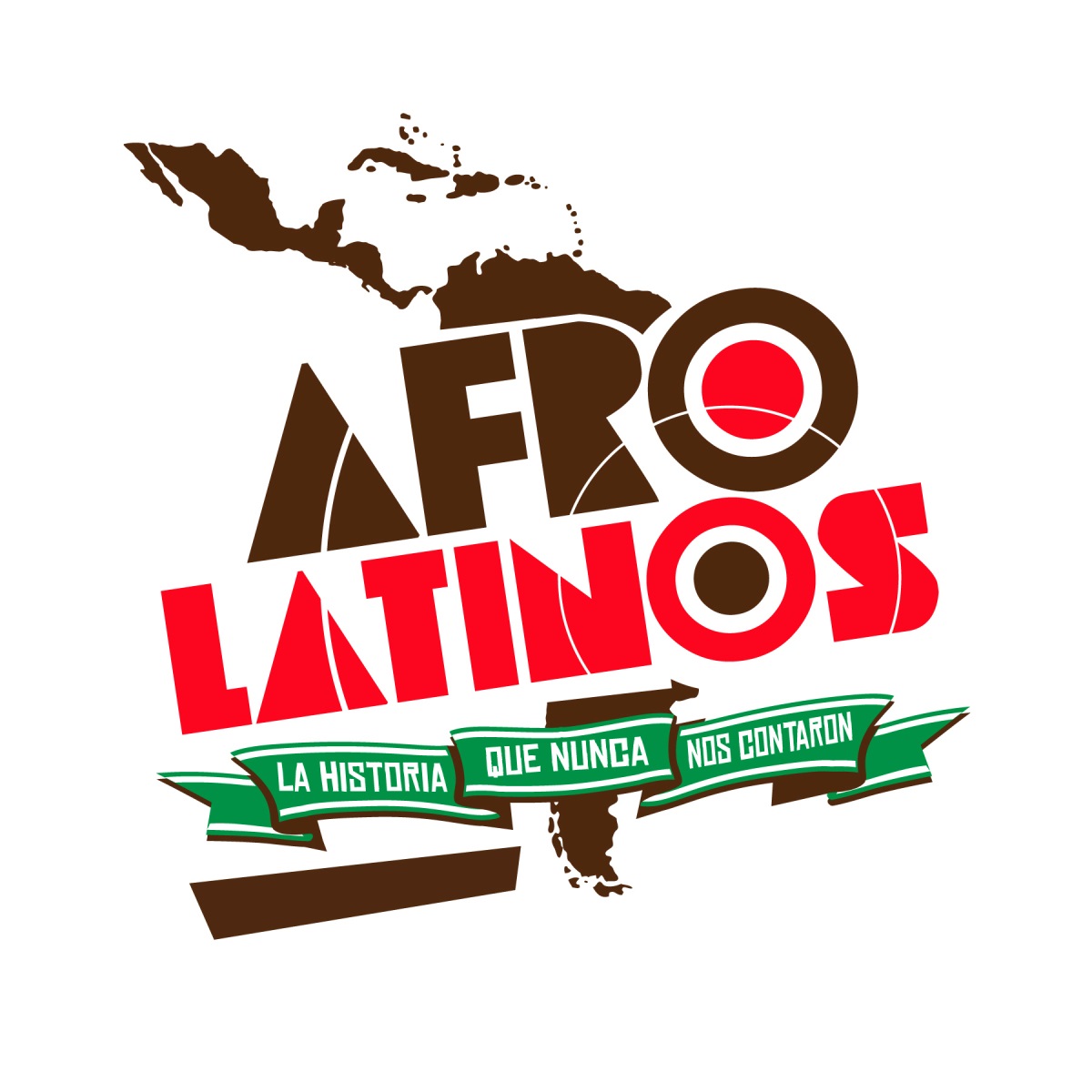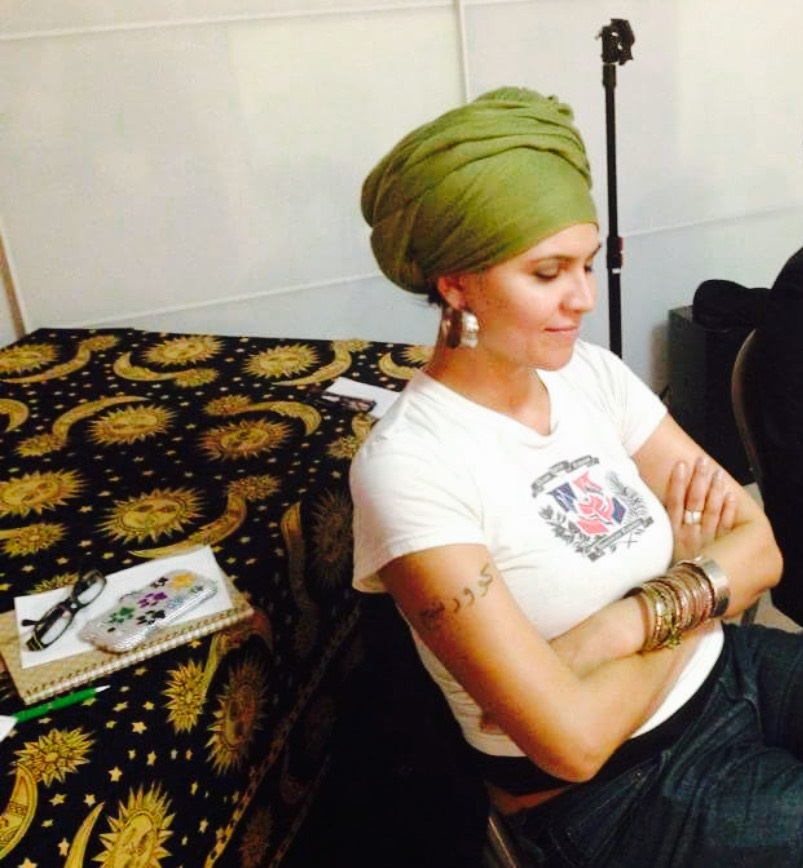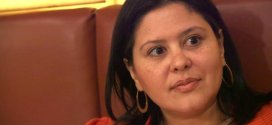I met Alicia Anabel Santos back in 2011 and there is a lot I can tell you about her, she is a fierce writer, storyteller, activist, community organizer, founder of the New York City Latina Writers Group, devoted mother, one of my mentors, a loyal friend and tribe sister. Alicia was the first person who believed in me as a writer and aided me in giving birth to my memoir, she has supported all my endeavors fully and to have her on your corner is to know that you are blessed.
Today I sit with her to discuss about one of her projects, the documentary AFROLATINOS : The Untaught Story. 
WA: Tell us about AfroLatinos, what inspired this project?
AAS: I am Alicia Anabel Santos, Writer and Producer of Afrolatinos: The Untaught Story. Afrolatinos.
AFROLATINOS: THE UNTAUGHT STORY is the story of the estimated 150 million Afrodescendants dispersed throughout Latin America who have been excluded from historical narratives, literature and academia. With the United Nations declaring 2015-2024, the International Decade of People of African Descent, including Latinos in the discourse is revolutionary and important. The seven part series, Afrolatinos, takes you on a journey throughout Spanish and Portuguese speaking nations as we learn about their respective histories, religions, music, dance and numerous contributions. We hope this documentary will empower Afrolatinos, start a dialogue, create awareness, promote change and help give voice to a community that has been silenced and historically marginalized.
For me what inspired this project was the idea of “knowing one’s place,” knowing my place! When you are someone who is born here in the United States sometimes you can be made to feel as though you are an outsider. Coming up in New York City in the 70s, in Bushwick, Brooklyn, I wasn’t light enough to be white, I wasn’t dark enough to be black so people didn’t know what box to put me in. And back then there was no hispanic box to check off. I feel this is where the questioning really began for me. This idea of people wanting to put me in a specific box was problematic. I think for me, the breakthrough was when I was told I couldn’t be black, that I had “no right to be black” and that “there was no place for me in black culture.” This made me question everything I had been taught and I started to question all those around me who claimed to be “woke.” I have had to constantly fight to hold onto to the identities that define me and I will continue this fight with my work. I know who I am. I am not one thing over the other, I am a black latina, an Afrodominicana and I know where I come from. I was inspired by my own personal search for identity and belonging and I found it in my Afrolatino roots. When I wrote Two Cultures Marching to One Drum, it caught the attention of a TV producer, Renzo Devia. We met several weeks later and he commended me on writing the piece affirming my blackness and writing about something that many people weren’t and still today really aren’t admitting or talking about, that we, Latinx folks are also people of African descent.
WA: How did you and Renzo Devia cross paths and come to create this documentary? How long did it take? What is your role in this documentary?
AAS: After my initial meeting with Renzo he shared with me that he was getting ready to sell his company and wanted to dedicate his time to working on this massive documentary that is Afrolatinos. We met in 2008. I believe that we were sent to each other. We were meant to meet. We were both on an individual path of self-discovery, for Renzo it was his love of the tambor and for me it was my religious and spiritual connection. The universe brought us together. When he reached out to me in early 2008 he invited me to his office because he wanted to congratulate a sister on a publishing an essay on such an important subject “identifying as black in latino culture” de eso no se habla! At least the idea of celebrating blackness was not something that I came up hearing. My identifying as an Afrolatina, Afrodominicana, is a political statement, it is incredibly revolutionary because we come from cultures that want to deny all things black. Some lighter skinned latinos don’t acknowledge our privilege. Some of my people aren’t talking about colorism or the racism that currently exists in our communities. There are so many issues that have marked and our marking the generations past and present around hair, social status, marrying white, fearing all things black, (s)exploitation of black women in our countries. We must talk about these things.
This Afrolatina identity is more than my skin tone, it is my history, my religion and its my story. I would love to see more people embracing and loving the skin they are in. But this isn’t easy. It’s about decolonizing a mindset. It’s about removing all the toxic BS that has some of my people brainwashed! It is about educating ourselves on all the amazing things we inherited from our African ancestors.
My role in the documentary is that I am the head writer and producer of the film.
WA: When did it launch? When was the first screening and how was the reaction of the audience?
AAS: We began traveling for Afrolatinos in 2008, we started in Mexico, Puerto Rico, Dominican Republic, Haiti, Colombia, Perú, Honduras and Uruguay. Then we were non-stop. We were forced to stop traveling in 2012 because we ran out of money. The dream for most documentary filmmakers is that when you give everything to your project, ensuring that the best possible interviews are secured, and your shots are cinematically stunning, we believed and still believe that the world will be just as excited as we are to see and hear this story all over the world. We really believed that a network would pick it up, solely on the incredible premise that is Afrolatino history. And we also believed (and still believe) that we would see Afrolatinos nationally and internationally. What we found was that the industry–TV and film–was not ready for our story. Scratch that! They were not interested in investing in a black story! They were not ready then. I feel differently now. Things have changed. More and more we are demanding that our stories be told. We are letting the powers that control who has access know that our stories matter and that we aren’t going anywhere. We are patiently awaiting our angel ally aka financial backer(s) to help Afrolatinos get to the next place. This year we screened Afrolatinos at the United Nations in honor of the International Decade for People of African Descent–that was huge! We also participated in the incredible Pan African Film Festival in Los Angeles and this October Afrolatinos will be screened at the HBO Latino Film Festival. We have faith that our project will be picked up and distributed widely.
What was the response to the doc?
What we discovered was that there is this deep desire to learn about our culture (both Latinx and Black folks) have been excited and proud that there are in fact afrodescendants in countries in Latin America that are predominantly white who are celebrating their black roots. At the same time there are some black folks that aren’t really feeling the Afrolatino label, “oh now you wanna be black?” There is much healing work that needs to happen. Knowledge. It is powerful. It’s important that we do our homework and see the Puerto Ricans, Young Lords who stood with the Black Panther movement and the Chicanos on the west coast who were fighting for the rights of black and brown people. This is why educating ourselves is crucial… knowing our history and being open and willing to talk about what keeps us divided.
What we have found is that people want to know the truth about who they are and where they come from. We all want a sense of belonging. No one likes feeling like the outsider. The more we showed the film, the more people got excited to talk about not only where they are from, but how this film impacted them. People were emotional. People were angry that they were not taught this history. There is nothing more empowering then looking up at a screen and seeing yourself reflected back to you. I think this is one of the biggest wins and greatest accomplishments with the film that people see their flags, they see their culture, they see their food, and their families in a way that they have not seen themselves reflected in media today.
WA: Why is it important to you personally to be part of this project? How working in this documentary has impacted your life?
AAS: Why is it important for me personally to be a part of this project? There is something incredibly affirming about working on a project this massive. I remember the early days when I was writing the treatment for the documentary and Renzo and I would spend hours just brainstorming all the ideas for the project. Planning and making lists of who we wanted to interview and what we wanted to cover. We listed where we wanted travel to shoot and then we did. We left all our comforts and took a leap. When I finally sat down with all of our research, played back our interviews and started actually writing the script I began to feel the enormous responsibility of telling this story. As a storyteller, for me writing is a spiritual act and so every time I would sit down to write anything for Afrolatinos I remembered that I was carrying centuries of history. I was writing the story of the estimated 200 million Afro descendants in Latin America and this felt like a lot of pressure. I wanted to do the story justice but more than that I wanted to make them, my Egun, my Ancestors, and my Santos proud.
WA: You recently were invited to Spain to discuss AfroLatinos for El Dia Internacional de la Mujer, tell us about the experience, how was the reaction in Europe of the documentary
AAS: My trip to Spain was a huge coup. Traveling to Spain and celebrating the African Diaspora after coming from a country (Dominican Republic) that was colonized by Spain, for me personally–it was powerful. The response to the documentary was incredible. It was a the First Annual Celebration of Women of African Descent in Spain–the first event honoring black women in Spain! What??? I can’t tell you what an honor it was for me to share space with these brilliant women who have dedicated their lives to ensuring that our stories are heard and that our rights are protected. It was a learning experience. A teachable moment. The documentary was well received, but this is only the beginning. I think I can speak for most of the women of African descent who were present — now what? Now that we have celebrated Afrolatino culture what are we doing to acknowledge the sexism, inequality and racism that currently exists in Spain. This was just one conversation of many that I hope to continue having all across Europe, Africa, and here in the United States.
WA: What is next for Afrolatinos?
AAS: We are thrilled to announce that Afrolatinos has been selected to be screened at the HBO Latino Film Festival, October 11-15th in New York. (Movie schedule to be posted in mid September).
WA: What is next for Alicia Anabel Santos?
AAS: At the moment I am excited to be visiting universities for Latin@ Heritage Month. I am excited to begin my workshop for senior citizens A Story for the Ages and my writing workshop Writing from the Womb starts again in late fall. The New York City Latina Writers Group turns 11 years old this October 15th and we are excited to be planning a huge celebration.
Thank you Alicia for sharing with us about Afrolatinos and to all my readers, please support the film by attending the HBO Latino Film Festival!
 Wendy Angulo Productions
Wendy Angulo Productions






Beautiful